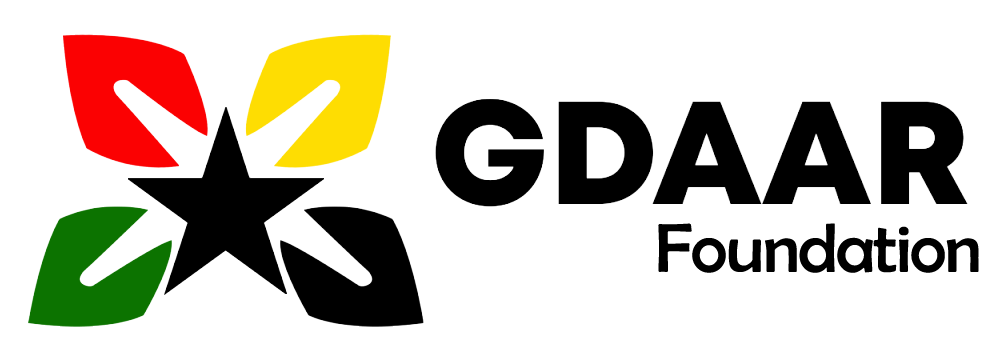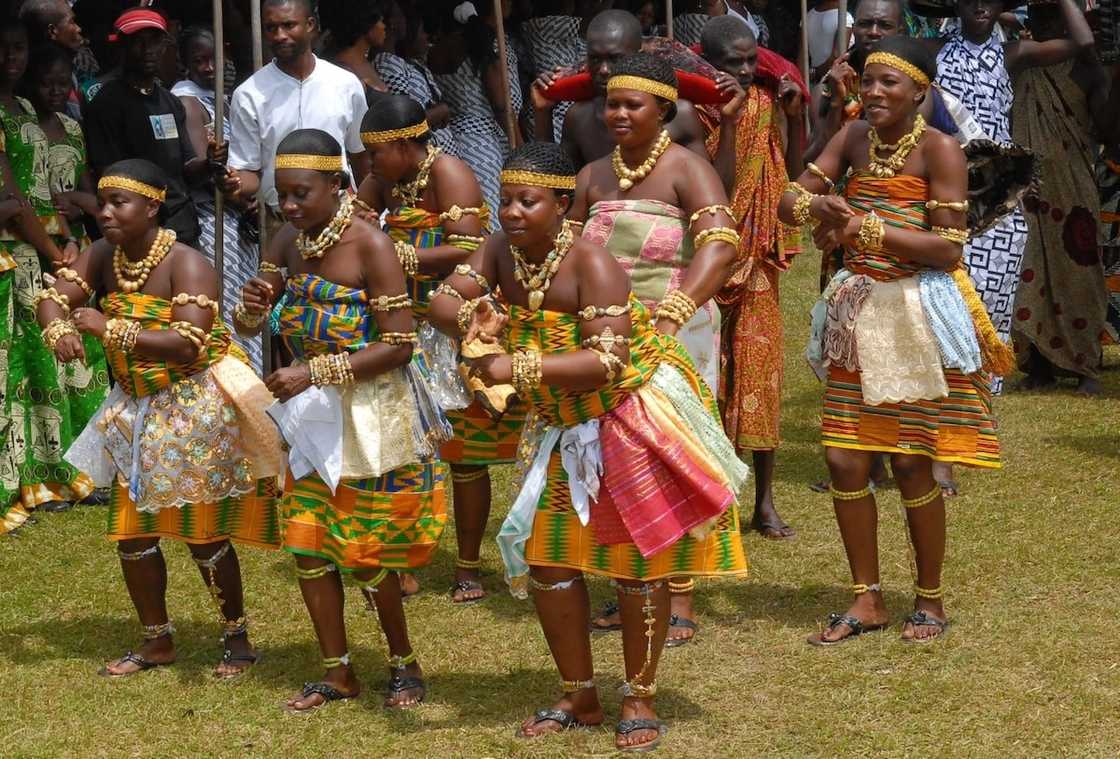Long before dawn, the sound of drums stirs the air. Slow and deliberate, they call the people home. In the heart of Ghana, festivals are not simple celebrations; they are living archives of memory, identity, and pride.
From the Aboakyer of Winneba to the Homowo of the Ga and the Hogbetsotso of Anlo, every dance, chant, and costume tells a story older than the nation itself. These are not performances for visitors. They are sacred reenactments of survival, gratitude, and freedom.
For the Ghanaian diaspora, these festivals hold a magnetic power. They bridge oceans, calling descendants back to their ancestral rhythm, the same rhythm that once echoed across distant lands through resistance songs and heartbeat drums.
In Ghana, to attend a festival is not just to watch; it is to participate in time itself.
Aboakyer: The Hunt of Brotherhood
The coastal town of Winneba awakens in a surge of excitement each May. The streets come alive with color as two rival Asafo companies, Tuafo and Dentsifo, prepare for a sacred hunt that has endured for centuries.
The Aboakyer Festival, meaning “the catching of a live deer,” commemorates the migration of the Simpa people and honors their ancestral god, Otu. In ancient times, human sacrifice was demanded. Today, the hunters capture a deer alive and present it at the shrine as a symbol of life preserved.
The crowd roars as the hunters return from the forest, sweat and pride glistening on their faces. The air fills with drumbeats, powder smoke, and jubilation. Chiefs in kente regalia dance to the rhythm of the talking drums, while young boys mimic their movements with wooden swords, their eyes shining with pride.
For locals, Aboakyer is not only about tradition but remembrance. It is a living covenant between the people and their past. For the diaspora, it speaks to survival, transformation, and unity, the same themes that shaped the African journey across generations.
Homowo: The Laughter of Triumph
In Accra, the Ga people celebrate Homowo, which means “hooting at hunger.” It is a festival of abundance and defiance, a time when laughter replaces sorrow and tradition triumphs over hardship.
The celebration traces its origin to a severe drought that once devastated the Ga lands. When the rains returned and the harvest flourished, the people marked their victory by mocking hunger itself. They hooted, danced, and feasted in joy and gratitude.
Today, Homowo transforms Accra into a mural of celebration. Chiefs sprinkle “kpokpoi,” a sacred maize dish, to bless the land. Drummers beat rhythms that seem to shake the very ground. Children run through narrow alleys, women in red and gold move gracefully through the streets, and men chant in deep unison.
Homowo teaches that no suffering lasts forever. It is a philosophy of hope disguised as celebration. For those returning from the diaspora, the message is clear: to laugh in the face of hardship is to claim victory over it.
Hogbetsotso: The March of Freedom
In the Volta Region, the Anlo-Ewe people gather each November for one of Ghana’s most symbolic festivals, Hogbetsotso, meaning “the festival of exodus.”
It commemorates the legendary escape of the Ewe people from tyranny in Notsie, their ancient home in present-day Togo. Guided by unity and wisdom, they broke through the city walls and journeyed west to freedom, a story that continues to inspire generations.
During Hogbetsotso, the Anlo chiefs sit in majestic processions, wrapped in royal kente, their ornaments gleaming in the sunlight. Traditional dancers move with strength and grace to the rhythm of the Agbadza drum.
The highlight is the grand durbar, where chiefs and people reconcile conflicts and renew communal bonds. For many returnees, this moment is deeply moving, as they watch a community reenact freedom, not as a distant memory but as a living ritual.
Hogbetsotso reveals that freedom, in Ghana, is not only political but profoundly spiritual.
Beyond Celebration: The Meaning of Memory
Across Ghana, festivals are not staged events. They are acts of remembrance and renewal. Whether it is the Damba of the North, the Kundum of the West, or the Odwira of the East, every region holds a story of rebirth and continuity.
Festivals bring together the living, the departed, and the unborn in a shared circle of meaning. For diaspora Africans seeking reconnection, these celebrations offer more than history lessons. They are living pathways back to belonging.
Drumming is not simply music; it is communication with time itself. The colors, the chants, and the sacred rituals all serve one enduring truth: Ghana remembers.
And as travelers stand beneath the same sun that once shone on their ancestors, they discover something quietly eternal. The journey home is not only about roots. It is also about rhythm.
Ghana’s festivals, in all their fire and freedom, do not merely celebrate the past. They keep it alive in every beat, every song, and every dance that dares to remember.
Ghana celebrates various types of festivals including harvest festivals (like Homowo and Hogbetsotso), purification ceremonies (such as Odwira), warrior commemorations (like Aboakyir), and cultural celebrations. These festivals honor ancestors, give thanks for harvests, mark historical events, and strengthen community bonds.
Yes. Ghanaians are known for their hospitality and warmly welcome visitors to participate in festivals. However, tourists should approach these celebrations with respect, seek permission before taking photos, dress modestly, observe customs and rituals quietly, and engage with locals to understand the cultural significance.




